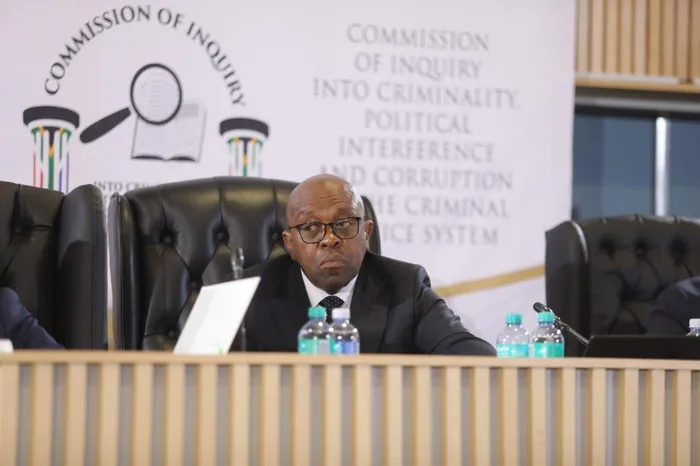
Mbuyiseli Madlanga, a former Constitutional Court judge, described the claims at the heart of the inquiry - made public by KwaZulu-Natal Police Commissioner Lieutenant-General Nhlanhla Mkhwanazi - as a potential death blow to the rule of law.
Image: Oupa Mokoena/Independent Newspapers
In a stark warning to the nation, retired Justice Mbuyiseli Madlanga opened the Judicial Commission of Inquiry into Criminality, Political Interference, and Corruption in the Criminal Justice System with an uncompromising statement: If the allegations are true, South Africa’s criminal justice system has been hijacked by criminals in power.
Madlanga, a former Constitutional Court judge, described the claims at the heart of the inquiry — made public by KwaZulu-Natal Police Commissioner Lieutenant-General Nhlanhla Mkhwanazi — as a potential death blow to the rule of law.
If the criminal justice system is infiltrated by syndicates or political actors wielding undue influence, then criminals in positions of power will never face justice, Madlanga said.
He added that this spelled doom for South Africa’s constitutional democracy.
“With a criminal justice system that is populated by malleable and corrupt functionaries, many criminals – especially those holding positions of influence – will rarely, if ever, answer for their criminal deeds.
“Also, malleability, corruption and dysfunctionality in the criminal justice system are at odds with what we, South Africans, expect of and are entitled to from a criminal justice system,” he said.
Mkhwanazi’s bombshells rocked the SAPS
The commission was established following Mkhwanazi’s shocking allegations on 6 July 2025, where he publicly accused suspended Police Minister Senzo Mchunu of sabotaging investigations into politically connected crimes, including assassinations in KwaZulu-Natal.
According to Mkhwanazi, over 100 politically sensitive dockets — including cases with signed arrest warrants — were removed from the Political Killings Task Team and effectively buried.
He accused Mchunu of deliberately dismantling the team and stalling appointments in SAPS Crime Intelligence, crippling efforts to investigate corruption and organised crime.
Mkhwanazi also linked Mchunu to controversial businessman Vusimuzi “Cat” Matlala, who allegedly secured SAPS contracts under questionable circumstances.
WhatsApp messages and internal communications are expected to be presented to the commission.
In response to the growing outcry, President Cyril Ramaphosa placed both Mchunu and National Deputy Commissioner Shadrack Sibiya on precautionary suspension. Acting officials have since been appointed.
“Words Must End Here”
In his opening, Madlanga did not mince words about the seriousness of the moment:
“Subvert the criminal justice system, and you subvert the rule of law and democracy itself,” he said.
“All forms of interference — intimidation, bribery, or political manipulation — are a cancer to justice. Words from us must end here. We must start with the investigative process.”
Public hearings are scheduled to begin in October 2025. The commission has been allocated R147.9 million and must complete its work within 12 months.
If the commission confirms Mkhwanazi’s claims, it will expose one of the most profound crises in democratic South Africa — the state capture of its justice system by those meant to uphold it.
kamogelo.moichela@iol.co.za
IOL Politics